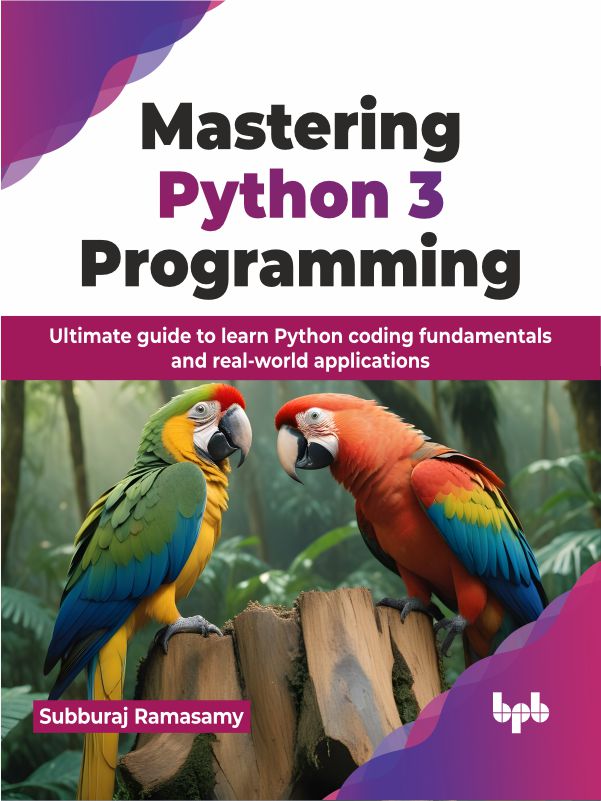
Mastering Python 3 Programming
FREE PREVIEW
ISBN: 9789355517128
eISBN: 9789355517807
Authors: Subburaj Ramasamy
Rights: Worldwide
Publication Date: 14th May, 2024
Edition: 2024
Pages: 568
Dimension: 7.5*9.25 Inches
Book Type: Paperback
DESCRIPTION
TABLE OF CONTENTS
ABOUT THE AUTHORS
Choose options

Mastering Python 3 Programming
Sale priceRs. 1,099

